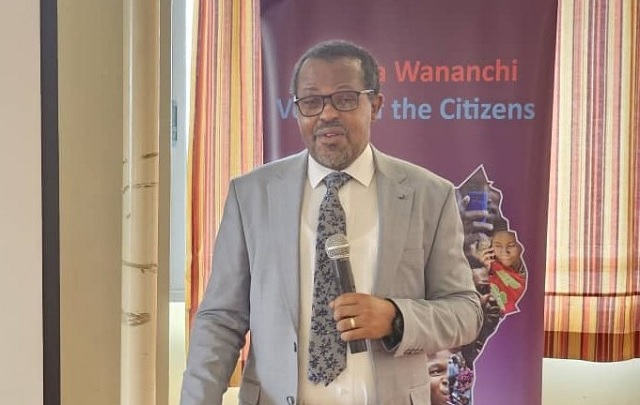
Kampala, Uganda | THE INDEPENDENT | The Commissioner of Health and Emergency Medical Services Dr John Baptist Waniaye says despite the establishment of a well-coordinated Emergency Medical Services system, injuries still top other causes of mortality in the country.
According to the 2013/14, Ministry of Health Annual Health Sector Performance Report, injuries, were not among the top 10 causes of mortality in Uganda, but Waniaye says this has since changed with injuries contributing 7.3% of the major causes of death.
He expressed concern that the statistics show an upward trend with Kampala Metropolitan Area registering over 2,500 deaths in 2018/19 alone.
Waniayes’ concerns were contained in a speech read for him by Maria Nkalubo the principal operations officer in charge of Emergency medical services in the Ministry of Health during the launch of a report by Twaweza on response to emergencies at Hotel Triangle in Mbarara City.
The survey which aimed at establishing citizens’ opinions and experiences on emergencies and emergency medical services covered 3,000 respondents through interviews conducted between September and October 2021.
Nkalubo said that the findings from the survey will form the decision-making during the overall process of improving emergency medical services in the country.
He further said that the six insights studied, key findings, and recommendations are in tandem with the current strategic direction of emergency medical services in the country.
The Director of Mbarara Regional Referral Hospital, Dr. Celestine Barigye, reported a high number of emergency cases, most of which are caused by accidents on highways. He said that most of these patients die shortly after arriving at the hospital.
He said that there is a need for training more emergency handling doctors like in other countries. Barigye also requested the Ministry of Health to begin educating the community on how to handle emergencies.
Marie Nanyanzi, the Senior Programs officer at Twaweza revealed that they found out that, one in eight households had experienced an emergency six months before the survey but only one percent of the respondents reported having called an ambulance for help.
She also said that the findings showed that the responsiveness of the health workers at the public facilities that Ugandans receive at the causality section was lower compared to those that go to the private facilities.
Nanyanzi said despite the efforts put in place by the government there are still a number of barriers that limit the quality of services provided in the public facilities like medical sundries and patient-to-health worker ratio which the government needs to prioritize.
Nkalubo said the government is working towards establishing a communication system to have one national ambulance call and dispatch system in Kampala and another sixteen regional ambulance call and dispatch centers for easy response to emergencies.
*****
URN
 The Independent Uganda: You get the Truth we Pay the Price
The Independent Uganda: You get the Truth we Pay the Price


